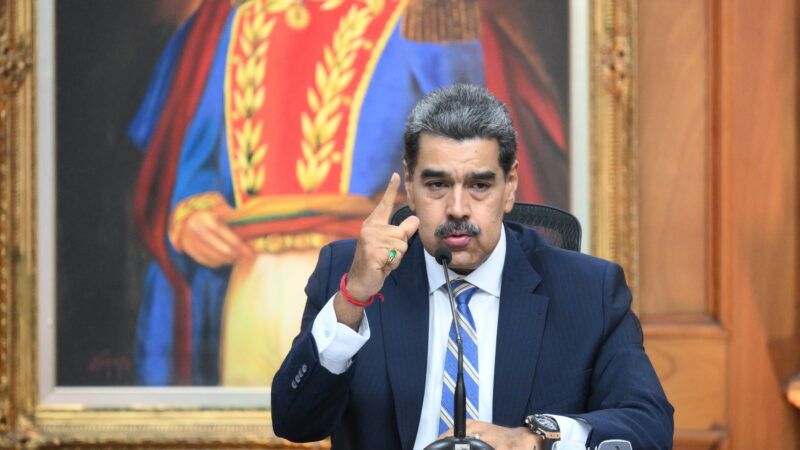Venezuela's Maduro Begins Third Term Amid Contested Election
President-elect Edmundo González has vowed to challenge Maduro's grip on power.

Venezuelan President Nicolás Maduro was sworn in for a controversial third term on Friday, despite unresolved disputes over the July presidential election and international pressure for him to step down.
"The power granted to me by the Constitution has not been given to me by a foreign government or a gringo government," Maduro declared in his inauguration speech. "I have not been placed by the oligarchy. I come from the people. The power I represent belongs to the people and I owe it to the people."
The election results from six months ago suggest otherwise.
Maduro, who has ruled Venezuela since 2013, was declared the winner by electoral authorities just hours after the polls closed on July 28. However, the announcement came without any disclosure of vote counts, raising skepticism about their legitimacy.
Meanwhile, Venezuela's opposition collected tally sheets from over 85 percent of the electronic voting machines, revealing a strikingly different outcome: opposition candidate Edmundo González won by a landslide. These claims were validated by independent election monitors, including the U.S.-based Carter Center and the Organization of American States, who deemed the opposition's results credible.
In response, several countries, including the United States, recognized González as Venezuela's president-elect and demanded that Maduro provide electoral records to justify his claimed victory.
The disputed results triggered widespread protests across Venezuela, with thousands taking to the streets over the summer to denounce Maduro's rule. The government responded with force, arresting over 2,000 demonstrators, killing at least 20, and launching campaigns encouraging citizens to report suspected opposition supporters.
Since then, high-profile opposition leaders and activists have faced detention. González fled to Spain, while his ally, María Corina Machado, who had been barred from running for office, went into hiding.
In the days leading up to Maduro's inauguration, a new wave of repression unfolded. Hundreds of protesters clashed with security forces in the capital city of Caracas on Thursday, and dozens of activists, opposition figures, and journalists were arrested. Machado, making her first public appearance in months, was briefly detained, further fueling international condemnation of what many are calling a stolen election.
But as Maduro prepares to solidify his grip on power, the spotlight has shifted to González. Over the past week, the opposition leader has traveled across the Americas, meeting with heads of state—including U.S. President Joe Biden—to rally support and pressure Maduro to step down.
González has vowed to return to Venezuela and assume the presidency by taking up residence in the official presidential palace. However, he has not disclosed concrete plans for how he intends to achieve this. Maduro, in turn, has dismissed these efforts as "fascist conspiracies" and has issued a $100,000 reward for information leading to González's capture, warning that he will be arrested upon return.
During his inauguration, Maduro—who has been in power for over 20 years—pledged a new era for Venezuela. "I swear that this new presidential term will be one of peace, prosperity, equality and new democracy. I swear it by history. I swear it on my life. I will keep my word."
Yet his track record of stealing elections and imprisoning critics paints a different picture. With the nation divided and its democratic institutions under siege, Maduro's promises are unlikely to quell doubts about his leadership or resolve the political crisis gripping Venezuela.


Show Comments (24)